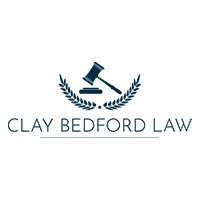Arnold Felony Lawyer, California
Not enough matches for Arnold Felony lawyer.
Below are all Arnold Criminal lawyers.
Clay Bedford
✓ VERIFIEDCriminal, DUI-DWI, Misdemeanor, Felony, Traffic
I am an attorney licensed to practice law in the State of California. My practice is limited to criminal defense and juvenile cases. The criminal... (more)
David Carl Beyersdorf
White Collar Crime, Felony, DUI-DWI, Criminal, Car Accident
Status: In Good Standing Licensed: 20 Years
Adam Charles Clark
Traffic, Motor Vehicle, Family Law, White Collar Crime, Criminal
Status: In Good Standing
Adam T. Spicer
Motor Vehicle, Criminal, Civil & Human Rights
Status: In Good Standing Licensed: 14 Years


